Prensa
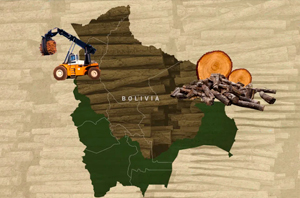
Protected Areas: Illegal Timber Strongholds in the Bolivian Amazon
For years in Bolivia, high-value woods like cedar and the mara variety of mahogany have been felled to feed domestic and international construction and furniture markets. But these valuable timbers have been harvested almost to the point of extinction. Now, trafficking networks and family clans are pushing deeper into the country’s Amazon and protected areas, including national parks and natural reserves, where remaining valuable species are supposedly protected. This rampant timber trafficking is contributing to deforestation, biodiversity loss, and environmental degradation. Leer más…
- 2 mayo, 2024
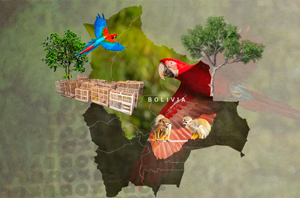
Poachers’ Safe Haven: Bolivian Amazon Plundered for Wildlife
Bolivia’s rich biodiversity makes it a prime target for traffickers. It stands as one of the world’s most biodiverse countries, hosting nearly half of South America’s bird species, around 350 mammal species, and 260 species of reptiles.
Furthermore, Bolivia’s extensive, porous borders offer ample opportunities for the smuggling of wildlife, ranging from large to small creatures, including those poached from neighboring countries. Leer más…
- 2 mayo, 2024
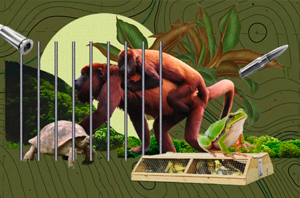
Poaching Grounds: Wildlife Trafficking in Peru’s Amazon
Peru is among the world’s top ten most biodiverse countries. According to the Peruvian Ministry of Environment, it is second only to Colombia in terms of the number and types of birds, and it ranks in the top five globally for amphibians, mammals and plants. This has made the nation a hotbed for wildlife trafficking. Some of this wildlife is poached for the pet trade. It is also hunted for bush meat, or sacrificed for traditional remedies and religious rituals. Others are used in scientific research or to attract tourists. Leer más…
- 2 junio, 2022

Corruption at Every Level: Who Profits from Destruction of Peru’s Amazon
From unchecked agricultural development to wildlife trafficking, corruption greases the wheels of every environmental crime in the Peruvian Amazon. Bureaucrats, security forces, prosecutors, regulators and regional politicians all act as facilitators to allow land trafficking, deforestation and the illegal extraction, transport, process or sale of timber, gold and fauna. Leer más…
- 2 junio, 2022

GameChangers 2021: How Organized Crime Devoured the Amazon Rainforest
There was record destruction of the Amazon in 2020, as the rainforest lost an area around the size of Belize, and the situation looks to be even bleaker in 2021. Deforestation reached record levels in Brazil, Peru and Bolivia. Colombia may break the trend, having reported moderate improvements in 2021. Leer más…
- 28 diciembre, 2021

Meet SEJ member Eduardo Franco Berton! Born in Bolivia, since childhood Eduardo has always been an enthusiast of wildlife and nature. He was trained as a lawyer specializing in environment and conservation. He has a master’s degree in Climate Change, and postgraduate degrees in Environmental Law, Management and Conservation of Natural Areas, and Literature. In 2021, Eduardo was awarded the TOYP (Ten Outstanding Young Persons) award by the Junior Chamber International (JCI) of Santa Cruz, Bolivia. His research has been recognized by the «Javier Valdez» Latin American Prize for Investigative Journalism and SEJ’s Awards for Reporting on the Environment. Camera in hand, Eduardo has traveled to some of the most remote parts of the American continent, from the jungles of the Amazon to the south of Patagonia, always looking for stories and images that give a voice to biodiversity and inspire the conservation of ecosystems. Leer más…
- 25 noviembre, 2021
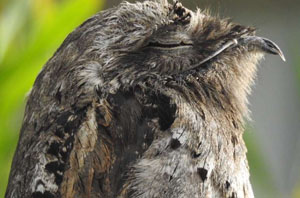
Expertos hablarán de fauna regional asociada a los mitos y leyendas
Cinco biólogos participarán de un conversatorio enfocado en las especies de fauna asociada a mitos y leyendas del departamento de Santa Cruz. Será este viernes, por la página de Facebook de la Red Ambiental de Información. Leer más…
- 28 octubre, 2021

In 2020, an investigation lead by Eduardo Franco Berton titled “Rare trees are disappearing as `wood pirates´ log Bolivian national parks”, supported by GRID-Arendal’s Investigative Environmental Journalism Grants programme, was published on Mongabay.com. Leer más…
- 12 octubre, 2021
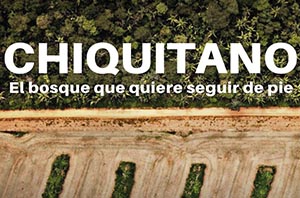
Documental »Chiquitano, el bosque que quiere seguir de pie» se posesiona en redes y genera debates
El lunes 9 de agosto, en la Red Ambiental de Información (RAI) estrenamos el documental “Chiquitano, el bosque que quiere seguir de pie”, una producción audiovisual de la RAI que aborda las amenazas que afectan actualmente a la Chiquitania, a causa de los avasallamientos, el tráfico de tierras, la deforestación y los incendios forestales. Leer más…
- 18 agosto, 2021
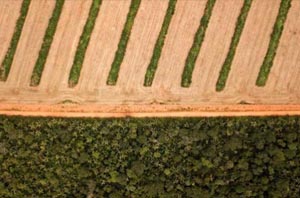
Documental revela tráfico de tierras, deforestación y otras amenazas que afectan la Chiquitania
El documental “Chiquitano, el bosque que quiere seguir de pie”, estrenado en la plataforma Red Ambiental de Información (RAI), aborda las amenazas que afectan actualmente a la Chiquitania, a causa de los avasallamientos, el tráfico de tierras, la deforestación y los incendios forestales. Leer más…
- 12 agosto, 2021

Chiquitano, el Bosque que quiere seguir de pie
Conversando con Eduardo Franco, periodista ambiental, editor general de la Red Ambiental de Información. Ver…
- 11 agosto, 2021
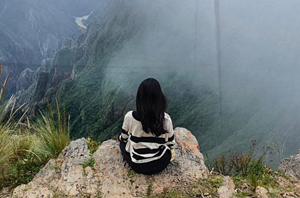
RAI: Hay una apropiación en identidad emocional y cultural sobre el cañón del Pilaya
Entre los municipios de Culpina y San Lorenzo se encuentra como límite este sitio que tiene una profundidad de 3030 metros, donde se pretende emplazar uno de los proyectos más ambiciosos del país.
Con la publicación en mayo de 2021 de la investigación sobre el proyecto hidroeléctrico de El Carrizal, se ha abierto la puerta al debate y se han retomado las actividades turísticas, pero esta vez con mayor visibilidad y apropiación del lugar, según relata el director de la Red Ambiental de Información (RAI), Eduardo Franco Bertón. Leer más…
- 13 julio, 2021
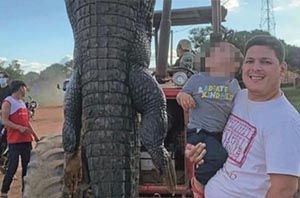
Pese a normas, no se sanciona el biocidio como delito ambiental
Sólo hay 13 sentencias por casos de biocidio en Bolivia, que legalmente no fueron efectivas bajo delito ambiental, sino con la figura de daño al patrimonio del país. Leer más…
- 20 junio, 2021
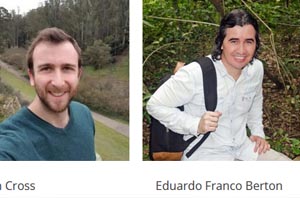
On the Origin of Science Writers
How do people get started in science writing? This is one of the most common questions that science writers get asked, and there are as many answers as there are science writers. Here we collect dozens of those answers from some of the best in the business, each of whom also offers one pithy nugget of advice for newcomers. This collection is inspired by a now-defunct comment thread on The Atlantic staff writer Ed Yong’s Discover Blogs post from 2010. Leer más…
- 25 febrero, 2021